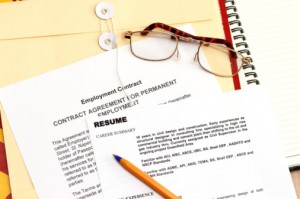 Most of you probably own a cell phone and bring it to work with you so that you’re able to stay in contact with your family and friends, and have it just in case of emergencies. While some workplaces have personal cell phone usage guidelines in place, some may not enforce the rules, and others may not have any rules at all. So, to avoid a major cell phone faux pas at work, here are five guidelines you should follow regardless of your type of job or position.
Most of you probably own a cell phone and bring it to work with you so that you’re able to stay in contact with your family and friends, and have it just in case of emergencies. While some workplaces have personal cell phone usage guidelines in place, some may not enforce the rules, and others may not have any rules at all. So, to avoid a major cell phone faux pas at work, here are five guidelines you should follow regardless of your type of job or position.
1) Use it sparingly
The best place to keep your cell phone at work is out of reach, especially if you get distracted easily. You can keep it in your purse, desk drawer, or vehicle, and make your personal calls before or after work, during breaks, and at lunch. Interruptions can reduce productivity for you and your teammates and increase risks of accidents and injuries on the job.
2) Keep it quiet
If you have to have your phone at work, turn the ringer off or use the vibrate mode. The ring of a cell phone can cause mistakes and cause you and your co-workers to lose focus. Turning your cell phone ringer off will limit the distractions that you create for yourself and others.
3) Talk in private
If you have to take a personal call on your cell phone while you’re at work, try to find a place away from your co-workers so you can have your conversation in private without disturbing others. Try using a break room or unoccupied conference room, or step outside. Most people don’t want to hear a conversation between you and your significant other, children, doctor, or bank.
When you’re unable to step away from your work area to take your phone call, keep your voice down. This will keep your conversation private and limit the distractions for others by not drawing attention to yourself.
4) Keep it out of the restroom
Don’t use your cell phone in the restroom as a private or convenient place to make a call. No one wants to hear your conversation while they’re in the bathroom, and chances are, the person on the receiving end of your call doesn’t want to hear flushing toilets or running water.
Respect the privacy of others and keep your cell phone conversations out of the bathroom. End your call before you go into the restroom, offer to return the phone call later, or find a better-suited place for you to make your call.
5) Don’t use your phone during meetings
Using your cell phone during meetings will only distract you from the conversation and make you appear uninterested or disrespectful. If you’re headed off to a meeting, keep your cell phone at your desk and turn it off or use the silent mode. It’s okay to keep your cell phone in your briefcase or purse, but make sure you won’t be tempted to pull it out and use it.
If you’re expecting an important phone call while you’re in a meeting, make sure to notify your co-workers that you’re expecting a call and that you may need to step outside to answer it. Only do this in emergency situations, keep your phone on vibrate, and exit the meeting before you begin your conversation.
Whether we’re at home or work, cell phones give us the capability to keep in touch with family, friends, and co-workers. You can use your cell phone at home however you wish, but while you’re at work, make sure to follow your employer’s guidelines for cell phone use, and be respectful of others even if your employer doesn’t provide rules. Then, practice workplace cell phone etiquette by using these five guidelines to maintain a professional image.






